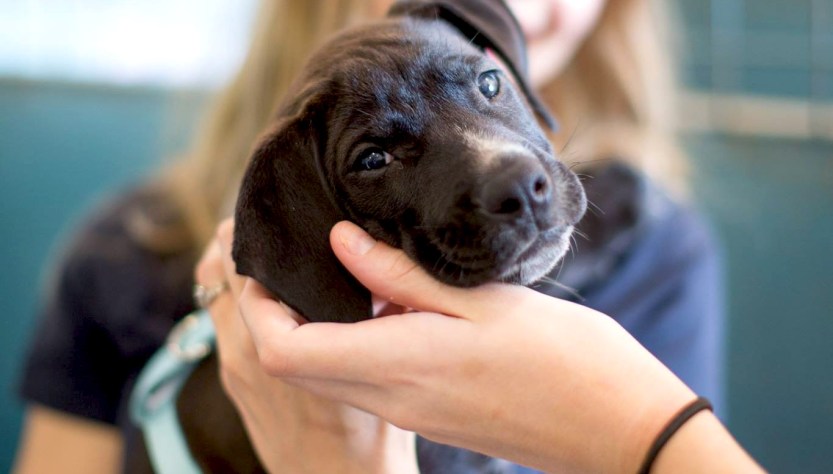Despite what you might think, socialisation doesn’t just involve puppies and dogs playing together. There are so many new sights and sounds for your puppy to learn about while growing.
Did you know that the more positive experiences your puppy has in their first 3-4 months, the more likely they are to grow into confident and social adults?
The socialisation period
Puppies have an extremely important development period between approximately 3 -17 weeks of age. This is known as the sensitive socialisation period. During this time it is essential that puppies are provided with plenty of opportunities to explore the world around them.

Under-socialised puppies will almost always develop some kind of behavioural problem, like separation anxiety, resource guarding, fearful behaviour and even aggression.
Positive experiences
Socialisation doesn’t only involve exposing your puppy to lots of new things; the trick is to ensure that they’re having an enjoyable experience. This means providing your puppy with opportunities to explore new environments and meet new people and animals in a way that doesn’t cause any fear or distress.
Allow your puppy to explore new items at their own pace and avoid pushing them into situations that might be overwhelming. Reward their interactions with praise, pats or a tasty food treat.
Window of opportunity
As the socialisation window starts to close around 4 months of age, you should start socialising your puppy as soon as you bring them home.
Our Baby Puppy Course provides a safe, fun environment where puppies can learn, explore and make new friends under the supervision of experienced trainers.
Baby puppies can attend RSPCA School for Dogs classes from 8 weeks of age, as long as they’ve received their very first vaccination.
Check out our available classes and find a course near you